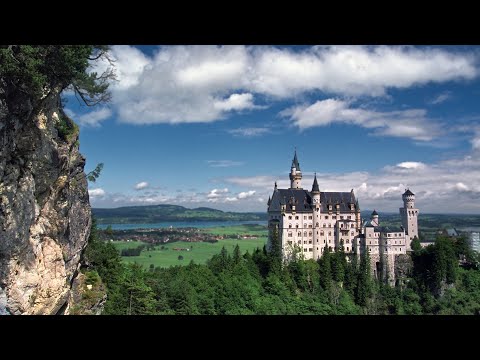
Munich, the capital of Bavaria in Germany, is renowned for its rich history, vibrant culture, and annual Oktoberfest. However, Munich’s charm doesn’t stop at its city limits. Just a short journey away are the foothills of the Alps, offering breathtaking landscapes and a plethora of outdoor activities. This seamless blend of urban excitement and rural tranquility makes Munich a unique starting point for exploring both cultural heritage and natural beauty.
#### Munich: A Cultural Hub
Munich is more than just the home of Oktoberfest. The city boasts an impressive array of cultural sights that showcase its long and storied past. The Marienplatz is the heart of Munich, where visitors can find the New Town Hall (Neues Rathaus) with its famous Glockenspiel that enchants onlookers with its delightful mechanical performances. The nearby Frauenkirche, recognized by its twin domes, holds a footprint that legend says belongs to the devil himself.
Art enthusiasts will revel in Munich’s extensive art collections. The Alte Pinakothek, Neue Pinakothek, and Pinakothek der Moderne form a trifecta of art museums displaying works ranging from old masters to contemporary geniuses. For those interested in science and technology, the Deutsches Museum offers fascinating exhibits on everything from physics to transportation.
Beyond museums and architecture, Munich has a lively culinary scene that blends traditional Bavarian dishes with international cuisine. Visitors must try local specialties like Weisswurst (white sausage), pretzels, and of course, local beer from one of Munich’s legendary breweries.
#### Transitioning to Natural Escapes
Leaving behind the architectural marvels and bustling beer gardens of Munich, travelers can easily transition to exploring nature’s marvels via a short trip to the foothills of the Alps. This region provides not only fresh mountain air but also an array or outdoor activities suited for every season.
In winter months these foothills transform into snowy wonderlands offering skiing and snowboarding opportunities within close proximity to Munich at places like Spitzingsee-Tegernsee or Brauneck-Wegscheid ski resorts. These areas provide well-groomed slopes suitable for different skill levels alongside panoramic Alpine views.
When snow melts away spring through autumn reveals hiking trails winding through lush landscapes dotted with serene lakes like Schliersee or Tegernsee — perfect spots for boating or swimming during warmer days. Cyclists will also find pleasure riding reliable routes framed by dramatic alpine scenery all around this region including popular long-distance cycle paths such as Via Bavarica Tyrolensis which stretches between Bavaria’s capital through Tyrolean valleys reaching Innsbruck in Austria.
#### Cultural Integration into Nature
One cannot overlook how deeply intertwined local culture is with natural surroundings in this region; Alpine traditions remain alive in mountain villages where traditional clothing like lederhosen or dirndls are common sights especially during festivals celebrating everything from cattle descents in autumn (Almabtrieb) to musical events echoing folk tunes across valleys throughout summer months.
Additionally educational opportunities abound exploring historical aspects related directly nature conservation efforts such as understanding impacts climate change on glaciers within nearby German Alps museum located at Zugspitze Germany’s highest peak providing not just scientific insights but incomparable views stretching across four countries bordering Alpine range – Germany Austria Switzerland Italy.
### Conclusion
From soaking up history art music delighting palate indulging physical pursuits amidst stunning landscapes there is no shortage reasons why journey starting urban splendor ending rural serenity encapsulates essence varied experiences one can enjoy around Munich foothill regions Alps — truly offering best both worlds any traveler seeking richness variety their travels.
